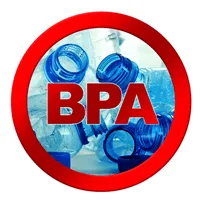
- Share on Facebook8
- Share on Pinterest
- Share on Twitter
In a study published in the journal Environmental Health, researchers from the Harvard School of Public Health found that the chemical Bisphenol A – or BPA – is linked to obesity and belly fat.
 BPA and Hormone Disruptors
BPA and Hormone Disruptors
BPA contains ingredients that interfere with normal hormone functioning. These chemicals are found in almost all plastic products, including food packaging, beverage containers and many others. BPA is lauded by the plastics industry because it makes plastic materials soft and flexible. However, individuals who test for high concentration of BPA in their system also are more likely to be obese or overweight, according to this study.
BPA falls under the classification of phthalates that include polychlorinated biphenyls (PCBs) and many others. These toxic chemicals have been linked to obesity, reproductive disruption in children and cancer.
Why Belly Fat is Critical
Belly fat is also called visceral fat. It is linked to increased risk for liver disease, diabetes, colon cancer, dementia and many other significant health conditions. Belly fat is stored in the central part of the body trunk, hips, thighs and buttocks.
Visceral fat develops with sedentary lifestyles. To get rid of belly fat, it is important to raise your heart rate and be physically active for at least 30 minutes daily. If you are not already exercising, talk to your doctor about developing a fitness routine that will help you lose weight safely.
Getting enough sleep nightly also helps reduce and slow down visceral fat accumulation. Eight to six hours of sleep every night for adults is critical to healthy functioning. It also improves immune system functioning.
Detoxification
One aspect of getting rid of belly fat is detoxification from the chemicals like BPA that contribute to the problem. Drinking plenty of water every day to excrete body toxins through your urine goes a long way toward improving your health. At least eight 8-ounce glasses of water daily is the recommended amount of water to keep your kidneys clean and functioning well.
Bowel habits are also an important part of detoxification. As you increase your water intake, you should also increase your fiber intake. Fiber helps keep your intestinal system cleaned out of dangerous toxins that contribute to many health conditions. Eating a diet rich in high fiber foods is also a great way to fight colon cancer and other health problems. If drinking more water does not help improve your bowel habits, try adding acidophilus dairy to your diet or taking two tablespoons of ground flax seeds.
Belly fat is a problem many of us fight. Body toxins may be contributing to the problem. Reduce plastic use by heating foods in ceramic or glass dishes, avoid plastic dishware and look for BPA-free products.
Do you use BPA-free products? What are some other ideas for avoiding BPA products?
– The Alternative Daily
- Share on Facebook8
- Share on Pinterest
- Share on Twitter

